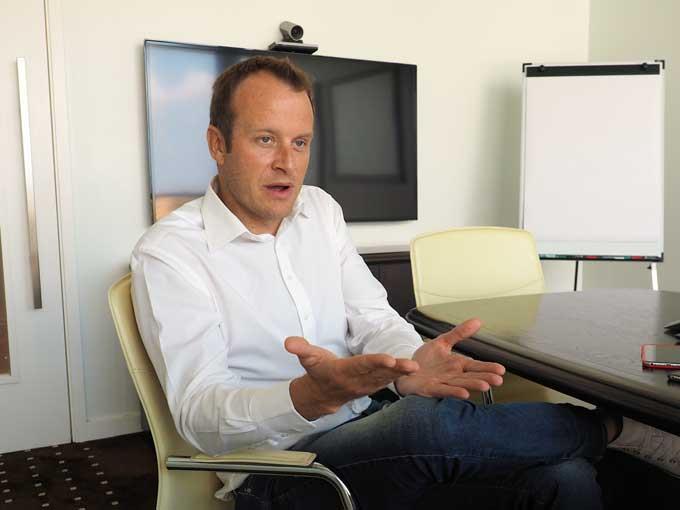VistaJet's Chief Operating Officer Nick van der Meer has predicted the company's further growth following a substantial investment by Rhône Capital.
Earlier this week, VistaJet announced that it had received a $2.65 billion valuation following Rhône Capital's $150 million cash investment into the fastest-growing private aviation company.
Rhône Capital, a global private equity firm with assets totalling $8.5 billion, has bought a 7 per cent stake in VistaJet.
Steven Langman from Rhône Capital, who will join VistaJet's Board of Directors, commented: "We seek to invest in the leaders in any sector, and with VistaJet we have invested in the best. We have closely followed VistaJet for some time and are convinced that the company's business model and global strategy give it a superior advantage in the marketplace. We share the management's vision to significantly grow the business, both organically and by acquisition, and we are prepared to make further investments, if needed, to achieve these goals. We are pleased to have invested in this dynamic industry pioneer."
VistaJet, originally from Switzerland, recently relocated its headquarters to Malta after obtaining an Operating Licence and an Air Operator Certificate from Transport Malta in May 2012, and 61 of its 72 state-of-the art mid-size to ultra-long range Bombardier aircraft are registered in Malta.
Van der Meer revealed that the company, which registers around 160 hours of flight per day, boasts an industry-leading customer retention level of 91 per cent and is, once again, surpassing its business development sales targets for 2017, with further growth confidently anticipated in the second half of the year.

VistaJet has generated substantial employment in their Luqa-based headquarters on the island, almost quadrupling their personnel in Malta from 80 to 265, with Maltese people forming 45 per cent of the workforce. The COO is quick to commend the hard-working, dedicated and talented staff who are, he says, vital to the company's success.
The company has a flourishing relationship with MCAST - a collaboration which, he explains, has been able to provide 'talented' aviation students with much-needed work experience in the field and career opportunities within VistaJet.
The private-jet company differs from its competitors as it owns its fleet of aircraft, with clients able to access superior flight solutions with just 24 hours' notice and only paying for the hours they fly on a modern fleet with an unrivalled, world-renowned quality of service provided as standard.
Van der Meer praised the efficiency of the digital platforms the company has carefully developed which, he explains, are able to provide their high-value clients with instant access to their services, something he describes as part of the organisation's commitment to embrace technology to drive the company forward.
Van der Meer congratulated the Maltese government, both the Nationalist and Labourite administrations, for creating and sustaining a business-friendly attitude on the island which, he said, has been key to facilitating the company's continued success.
Air Malta is a topic that is consistently ingrained within the Maltese public's conscience, with Tourism Minister Konrad Mizzi indicating that he is changing the direction employed in the previous legislature by his predecessor Edward Zammit Lewis.
After years of reduced routes, the Minister said - in answer to a parliamentary question last June: "The key focus must be revenue growth: one cannot have an airline that reduces routes and shrinks all the time. Our plan would be based on growth; we want improved productivity from the employees and, over the coming months, we will negotiate collective agreements with the four unions. This will mean more flexibility for the company to operate in."
Van der Meer suggested that a large workforce is a hurdle that is facing a number of companies today and said that streamlining the company would increase efficiency, productivity and profitability.